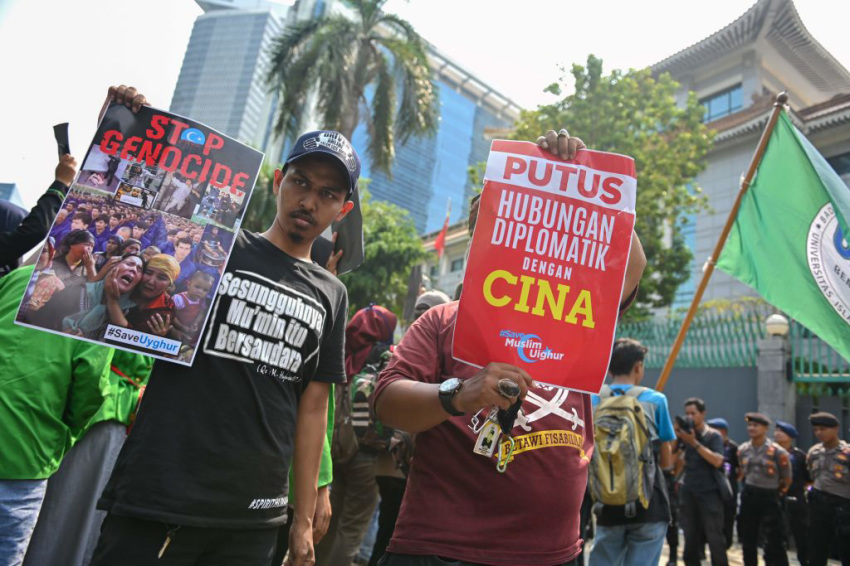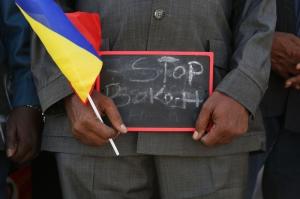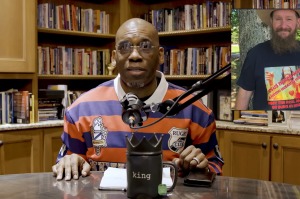Trump admin. combats China's 'egregious human rights abuses' by blocking goods made using slave labor

The United States government has banned the import of certain goods from China that it says are made by forced laborers from the Xinjiang region, where millions of Uighurs and other Muslim and religious minorities are held in mass detention camps.
On Monday, the U.S. Customs and Border Protection issued five Withhold Release Orders on products from China, blocking the import of certain goods including hair products, apparel, and computer parts.
The order specifically names five companies or industrial parks in Xinjiang and one company in eastern Anhui province the CBP says uses prison and forced labor to make products.
One of Xinjiang's "vocational skills education and training centers" is also named in the order, a name the CPB says is a euphemism for China’s “re-education” internment camps. Estimates suggest that as many as 1 million Uighur Muslims have been subject to internment camps, where they are taught to be secular citizens who will be subservient to the ruling Communist Party.
"This is not a vocational center, it is a concentration camp," said Ken Cuccinelli, the senior official performing the duties of the deputy secretary for the Department of Homeland Security. "A place where religious and ethnic minorities are subject to abuse and forced to work in heinous conditions with no recourse and no freedom. This is modern day slavery."
In a statement, U.S. Secretary of State Mike Pompeo said that banning the entities is part of combating the "egregious human rights abuses" that Uyghurs and other ethnic and religious groups in Xinjiang are facing.
Such abuses "include subjecting individuals to forced labor and stripping them of their freedom and agency to choose how and where they work,” Pompeo said. “These actions send a clear message to the PRC that it is time to end its practice of state-sponsored forced labor and to respect the human rights of all people.”
In the past year, the Trump administration has issued eight “withhold release orders” to block goods from China suspected to have been made with forced labor from entering the country. Previous bans included toys, peeled garlic, hair products, and artificial sweeteners.
Last month, Nury Turkel, a Uighur American attorney born in Xinjiang and a member of the U.S. Commission on International Religious Freedom, revealed that forced labor has been “part of Uighur life” for as long as he can remember.
“It’s one of the methods, one of the vehicles the Chinese used to repress the Uighur religion and Uighur culture,” he said. "When you buy anything made in China, if it's a textile cotton product, I think it should be something that gives you pause. As a consumer, please do your due diligence. Please stop at least buying any cotton or textile products coming from China ... this should be something easy to tackle.”
Sam Brownback, U.S. ambassador at large for International Religious Freedom, said that the tactics used against Uighur Muslims represent the “cutting edge of religious persecution.
Though they live in a remote region, China is employing its “most aggressive technology” to oppress Uighurs, including sophisticated cameras, facial-recognition technology, and collecting DNA samples, Brownback said.
“They've got technology deployed now where they've got surveillance cameras virtually everywhere in the public,” he noted. “They've collected genetic data on most of the people in the region to where you can be tracked on the internet, they have facial recognition systems. They could now theoretically close all the concentration camps and you would still live in a virtual police state if you were a Uighur in Xinjiang.”
China has also given Chen Quanguo, party chairman of the Communist Party in Xinjiang, a “vast amount of resources” to persecute Uighurs, allowing him to implement a comprehensive surveillance, detention, and indoctrination program in the region, Brownback said.
“My great concern is what it does to the Uighur people, but also that these systems will be replicated in other authoritarian regimes around the world,” he stressed. “And we've got this huge global battle going on between democracy and dictatorships, and dictatorships have been doing pretty well lately, unfortunately. China deploys its money resources very effectively and shrewdly and craftily to get a number of countries, particularly Muslim countries, not to speak up under threat. They will threaten aggressively.”
Recently, Southern Baptist ethicist Russell Moore urged Christians to care about the plight of Uighur Muslims in China, warning that authoritarian regimes rely on “tribalism” to keep their system of persecution alive.
“The way of Jesus Christ says that we pay attention to our neighbor on the side of the road who is persecuted, who is being beaten,” he said. “So let's pray for the Uighur [and] for other persecuted peoples. Let's pray not just individually, but together, and pray for them by name.”
“Let's be the people who stand up for whoever is being made invisible, whoever is being intimidated and bullied in our own neighborhoods and in our own communities because we're the people of Jesus Christ.”



























